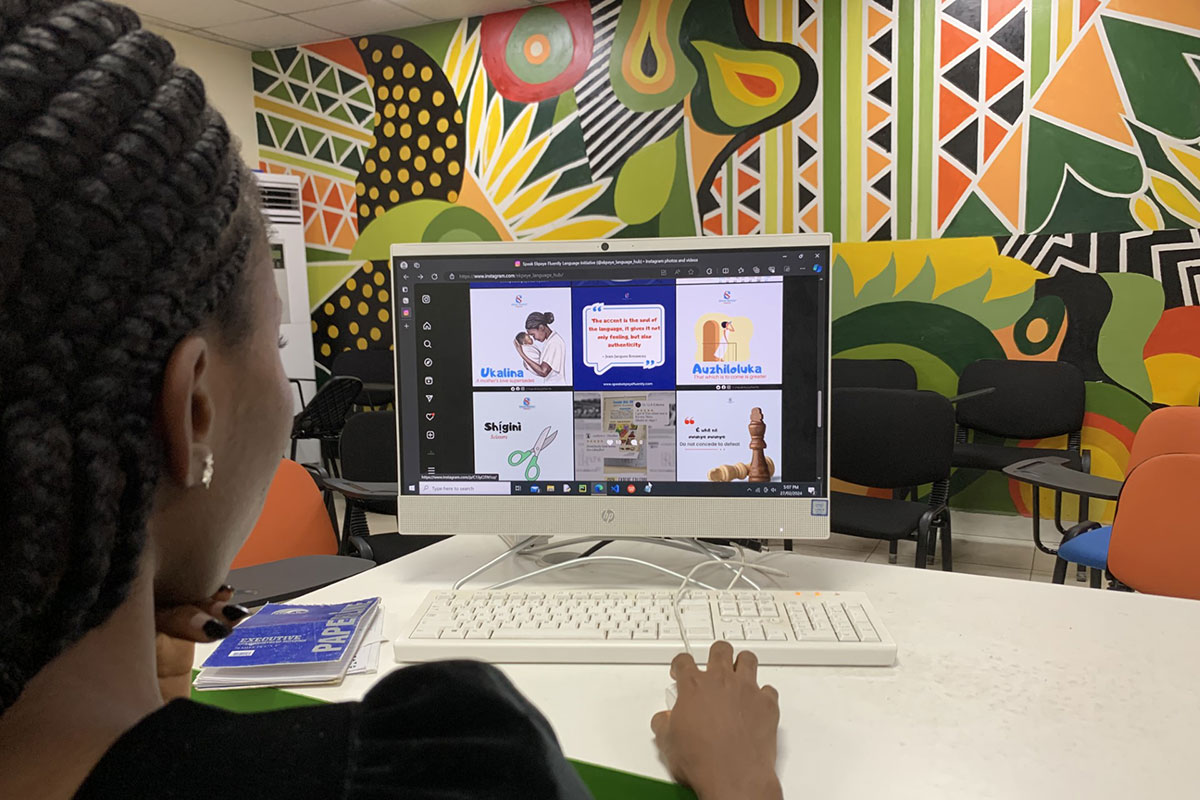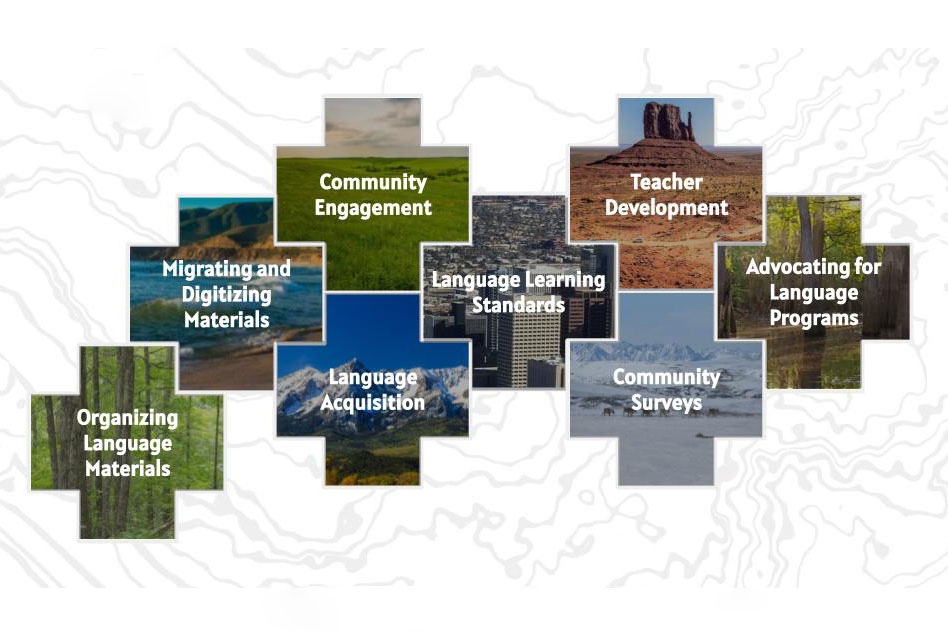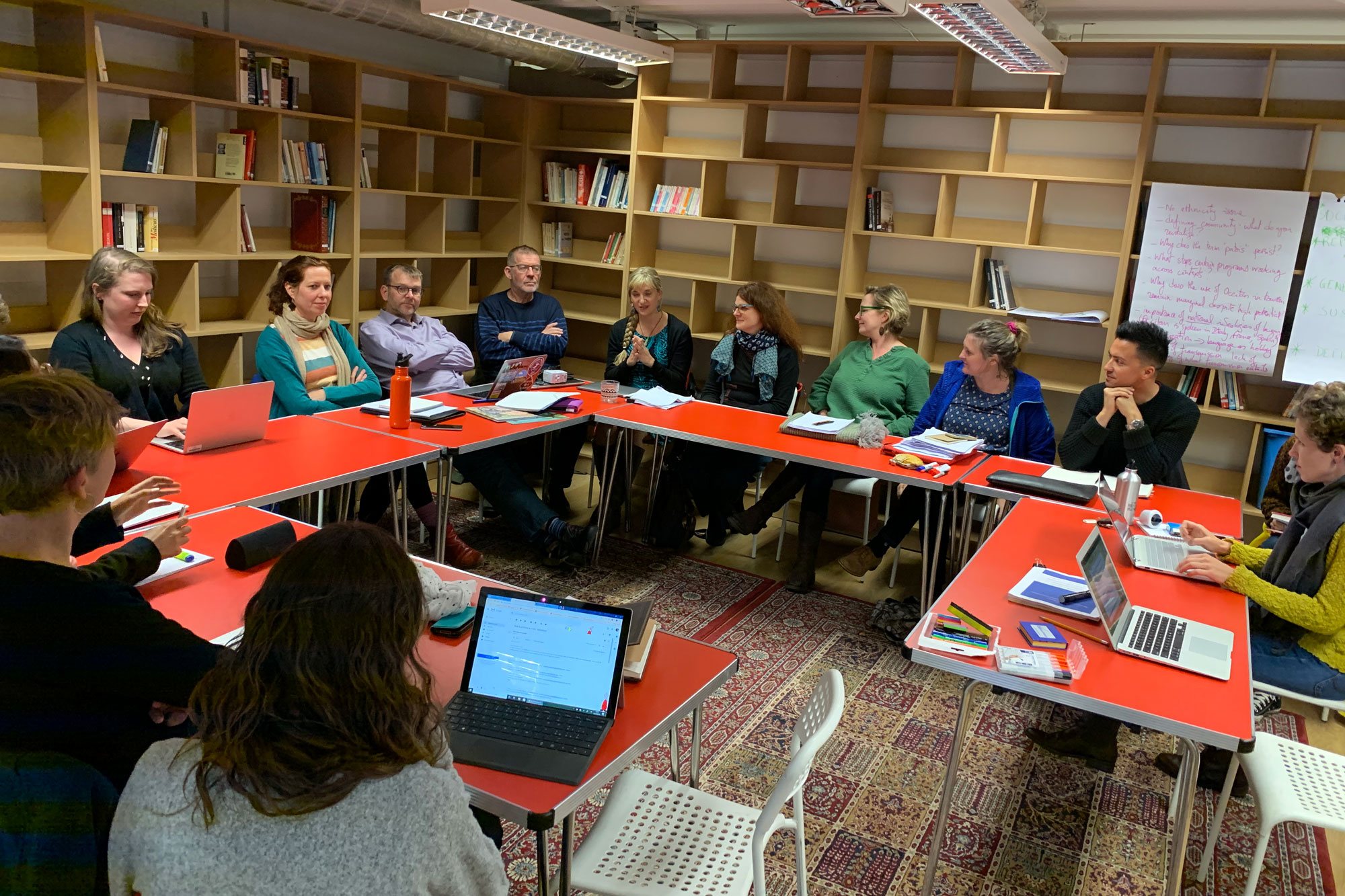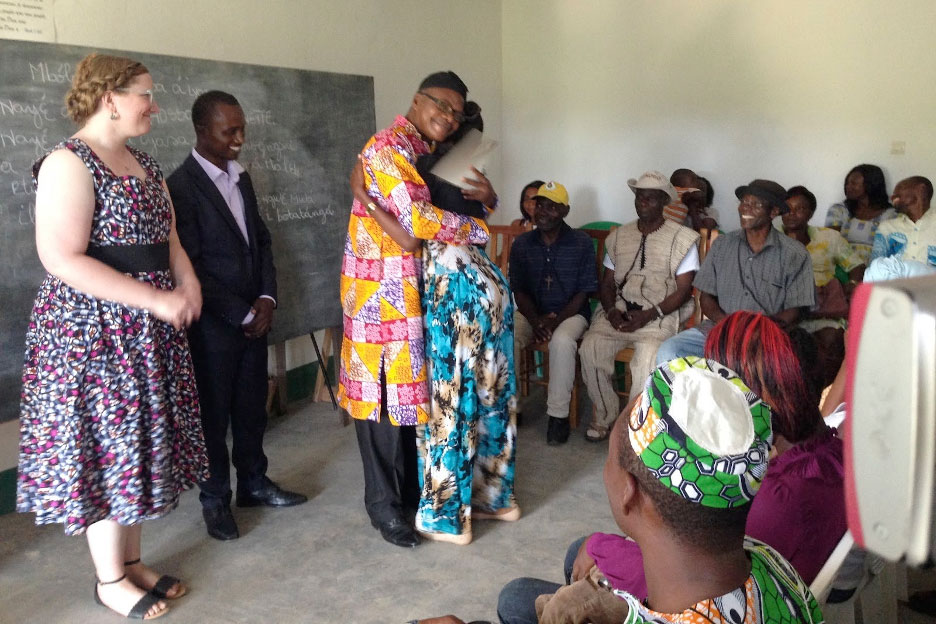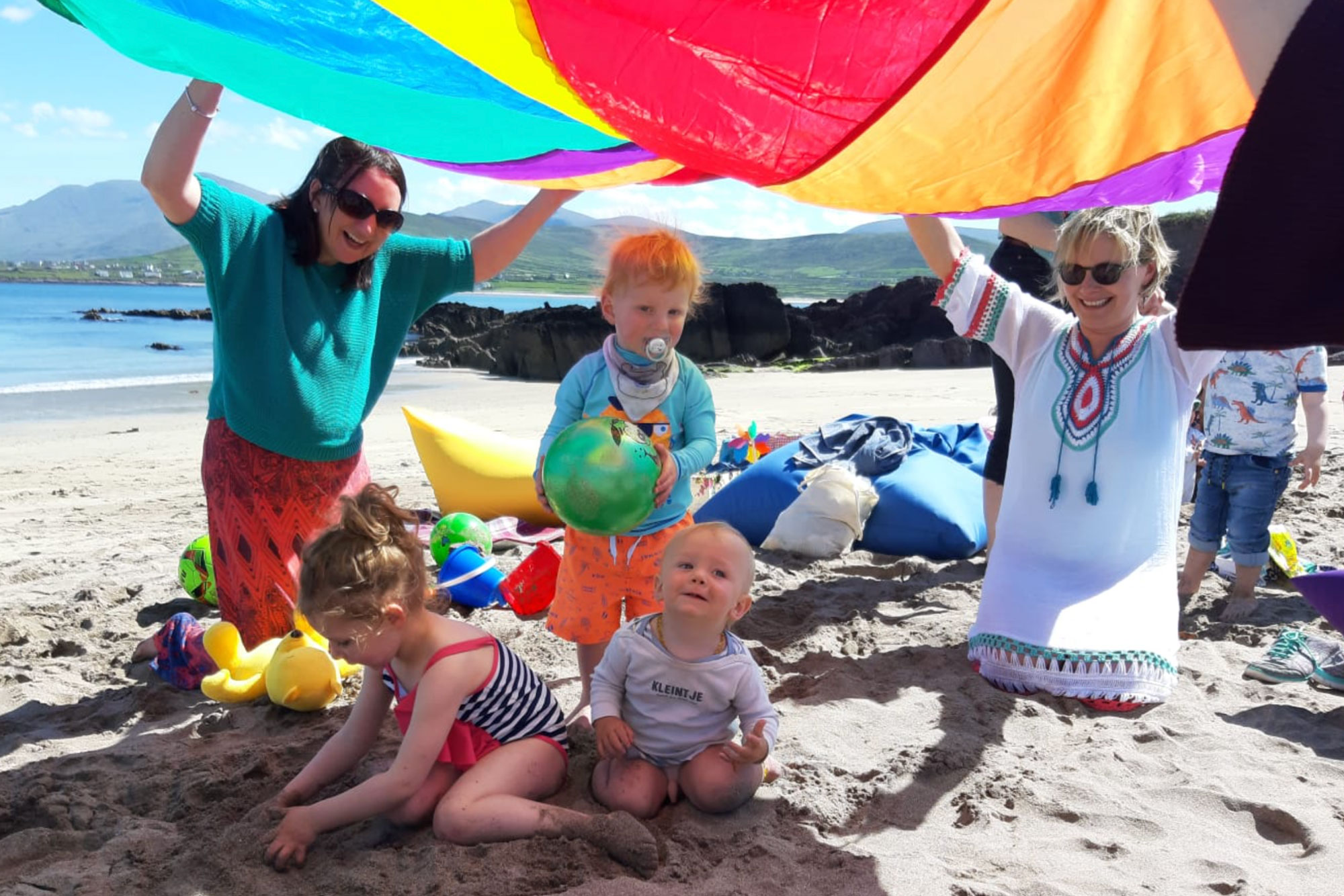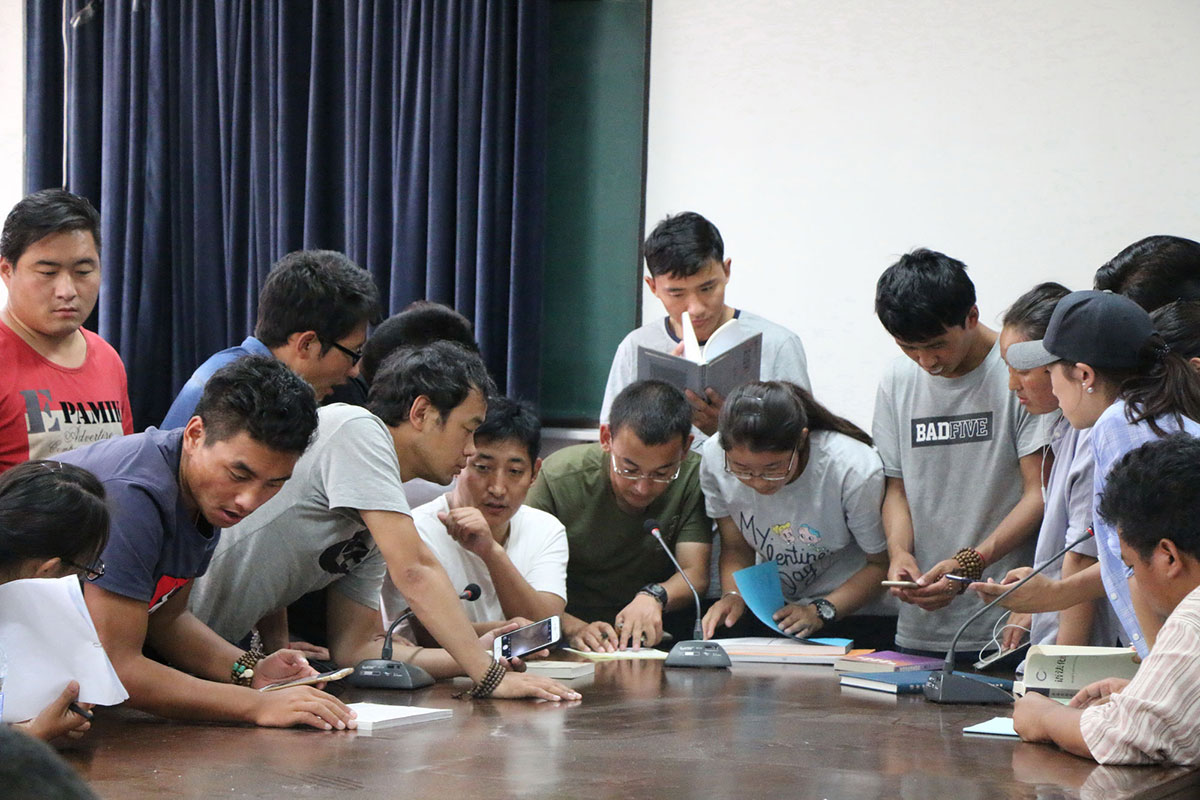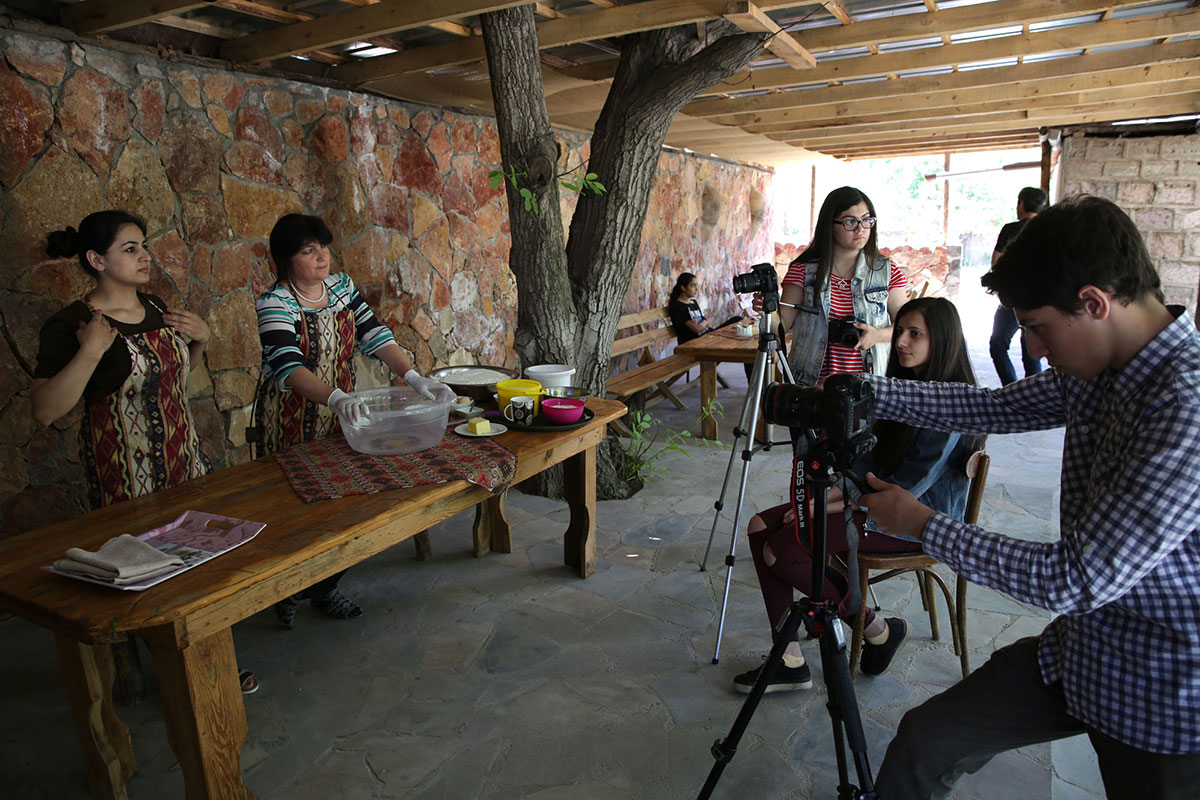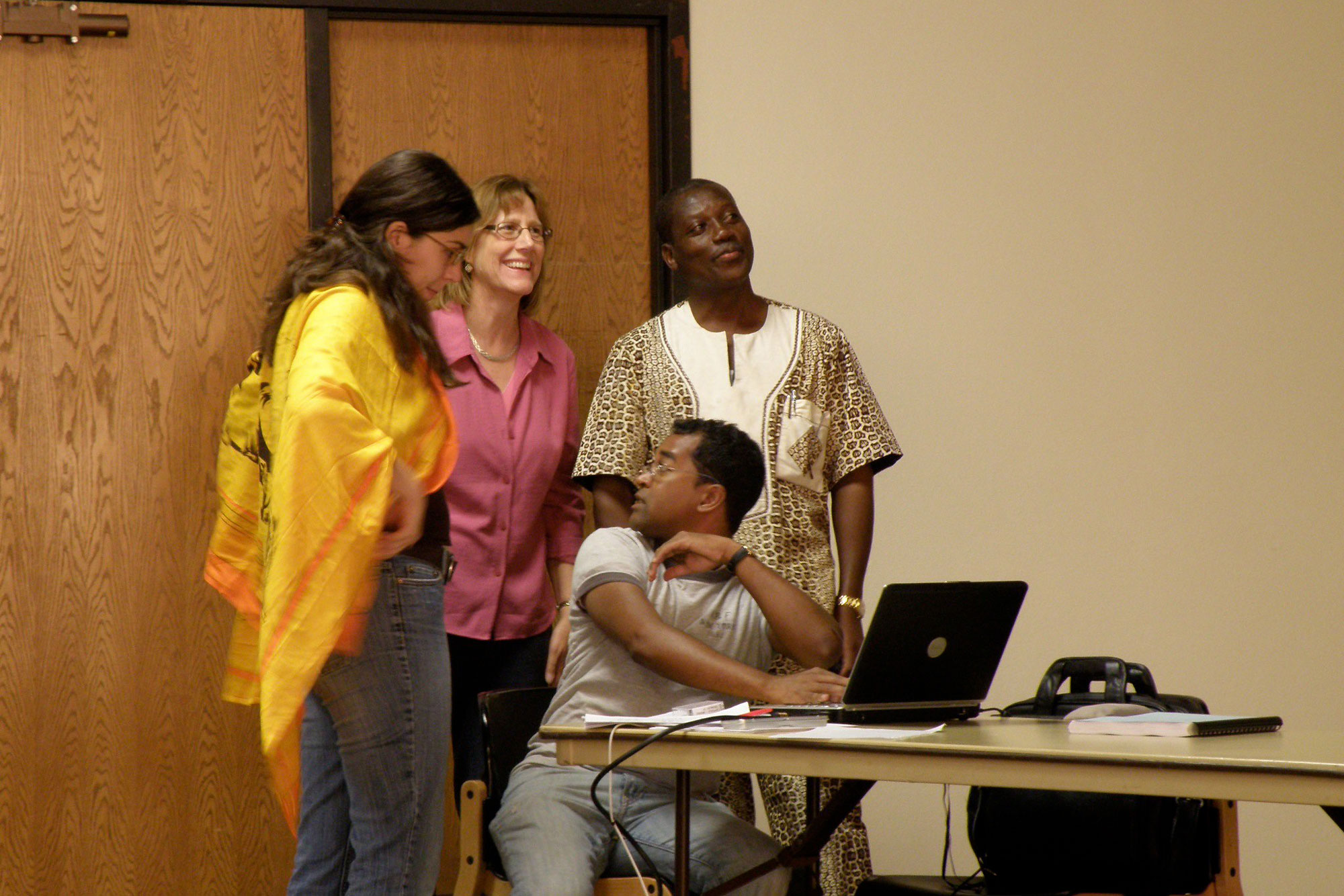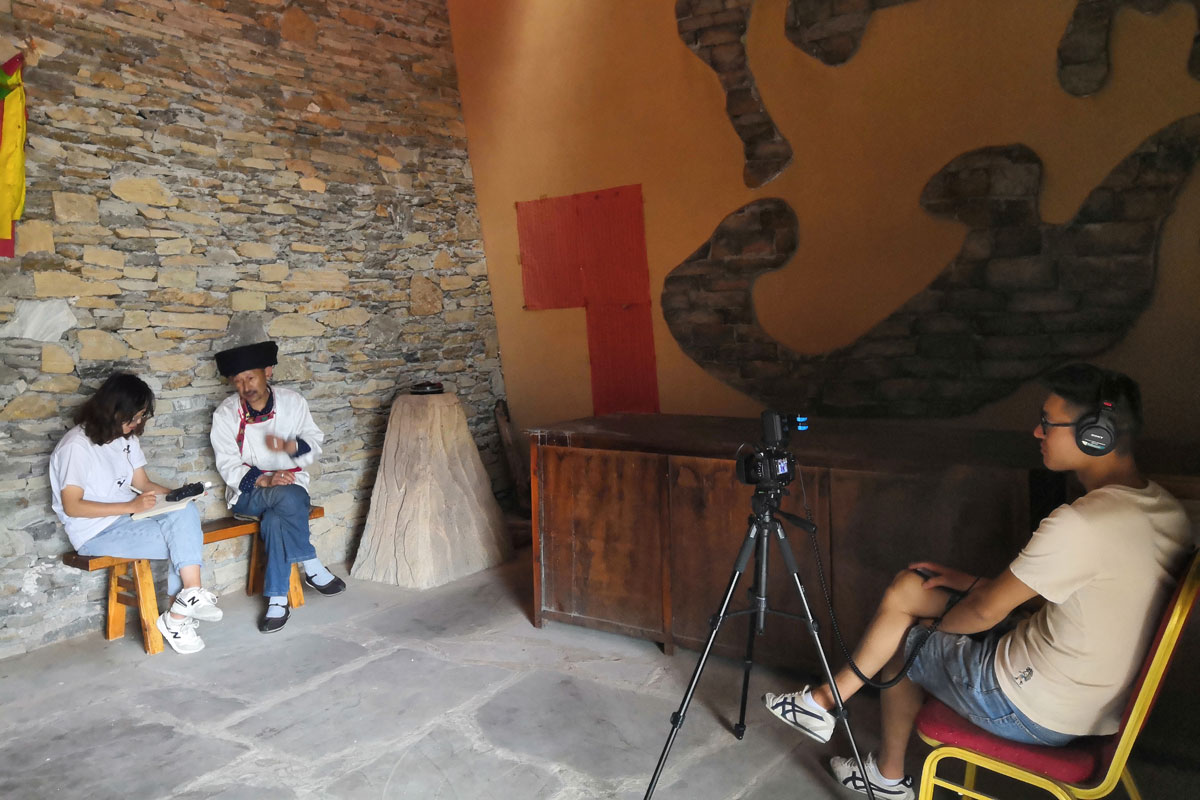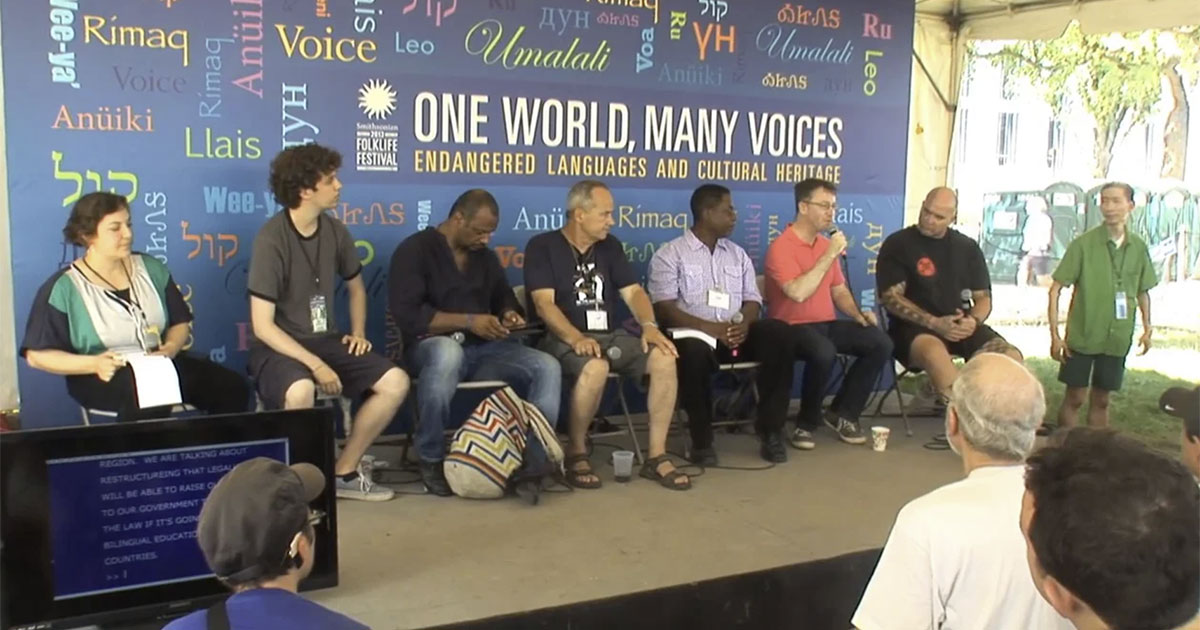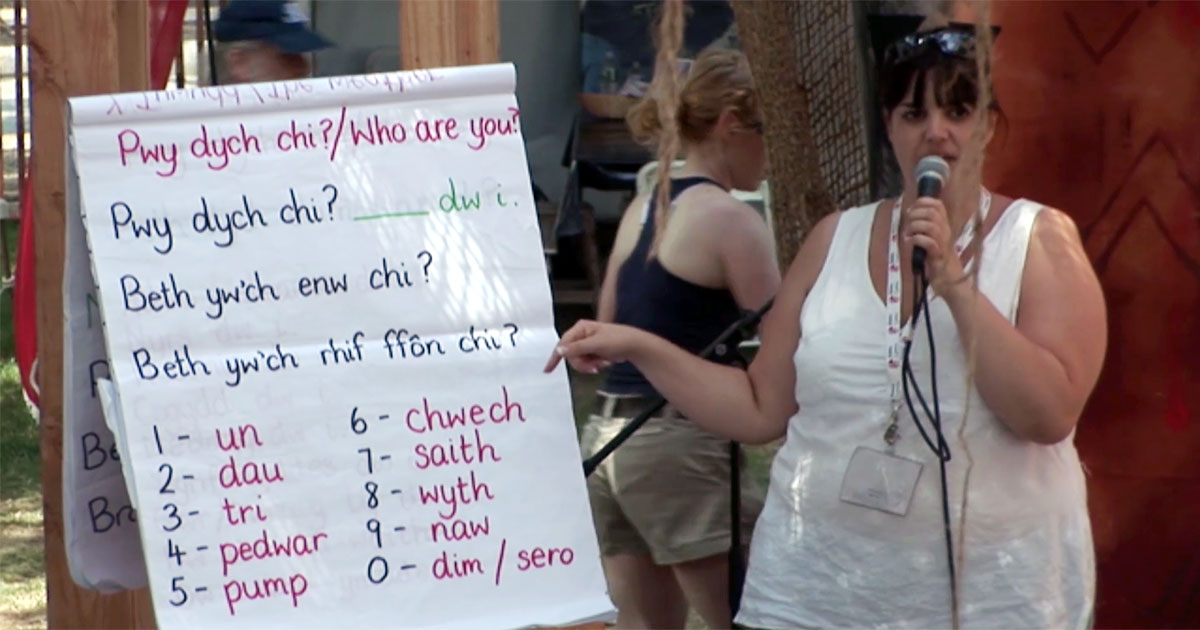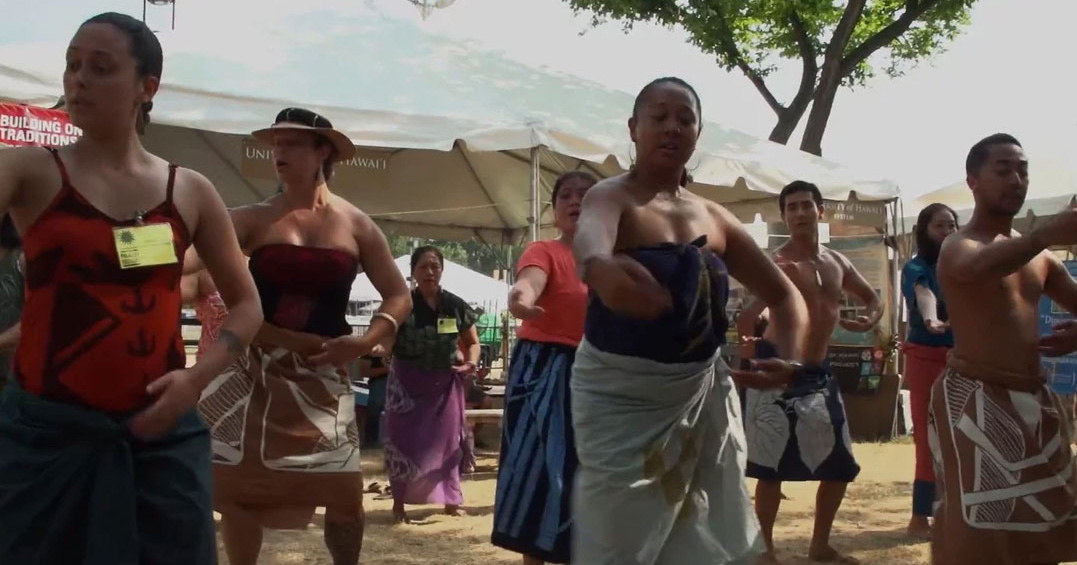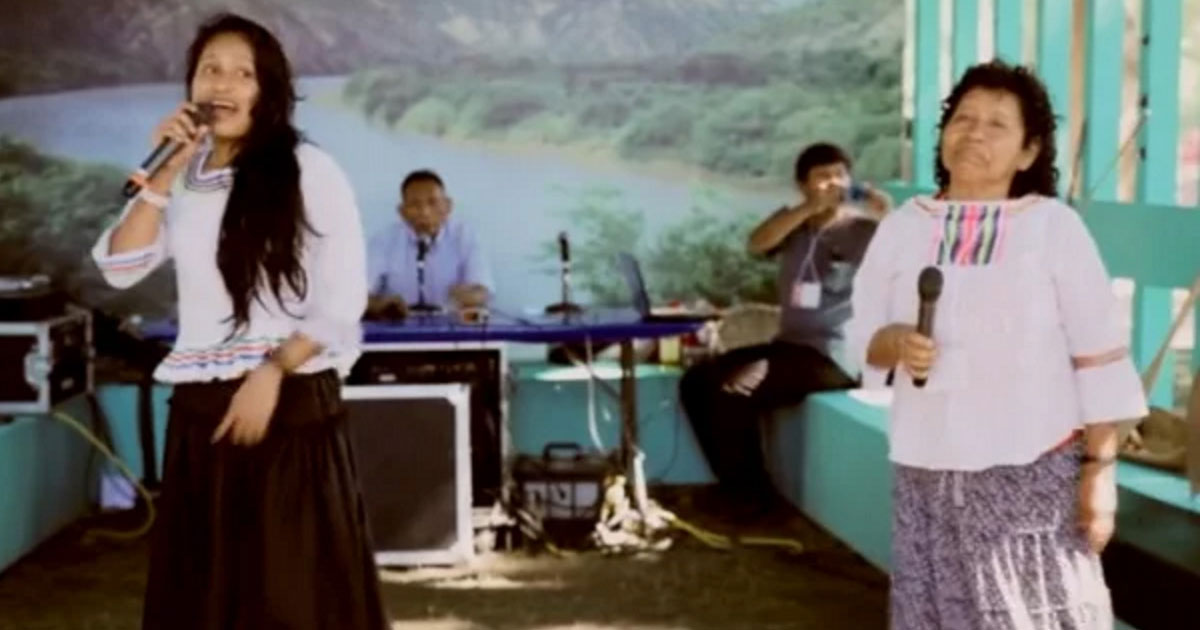Through language, we pass down traditional knowledge and skills—the foundation for who we are and our shared futures. Languages are expressions of collective identity. They record and reveal how people understand and interact with each other and the world around them, and they serve as a tool for community and individual creative expression.
Nearly eighty percent of the world’s languages are Indigenous, and/or minoritized. Social, economic, and political forces—like urbanization, oppression, war, genocide, climate change, and mass production of culture—pressure these languages and cultures to assimilate. In an effort to reverse this shift, thousands of communities, governments, and NGOs worldwide have committed to language reclamation and maintenance efforts. These efforts include advocacy work, enacting supportive policies, creating new approaches to first- and second-language acquisition, and strengthening family and community lifestyles that nourish language use.
Our work promotes language use in new and traditional contexts and strengthens engagement in cultural heritage. We conduct research to better support innovative community projects and understand how socio-historical events impact language communities today. To do this work, we are motivated by these actions and questions:
- How are skills that lead to language vitality effectively transferred?
- How do language communities adapt to a changing world?
- How can the Smithsonian connect language practitioners and share knowledge?
- How do we create an environment that fosters additive bilingualism in the United States and supports Indigenous and minoritized language communities?
With the Language Vitality Initiative, the Center supports vitality of Indigenous and minoritized languages and their communities. We recognize that reclamation is a long-term and often painful process that encompasses community strengthening and wellness rooted in traditional ways of knowing and learning. We are dedicated to collaborating with language communities in ways that respect their ethical principles and cultural norms and that support their language and cultural goals.









